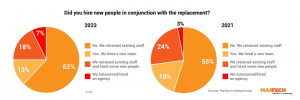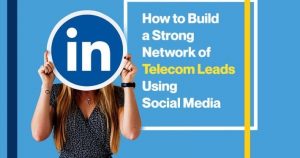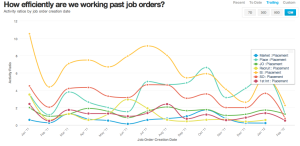Looking for a new job can be nerve-wracking. Whether you’re unemployed and need to find something fast, or you’re unhappy with your current position and looking for something new and better, the process of searching, applying, interviewing, and waiting can create all sorts of stress. It can be heartbreaking, too: you send off dozens of CVs and cover letters, you hear back from maybe a handful of places, you get a few interviews, and then you find out that another candidate was chosen. It’s nice that you at least got a foot in the door, but really, you just want the job!
How can you improve your chances of landing the job you’re after? Here are ten small things that can all add up and make a big difference in getting hired.
- Address the job description in your cover letter.
Having a boilerplate cover letter is certainly easier if you’re applying for lots of jobs, but it’s a lot less likely that you’ll get noticed with one. Instead, read each job description carefully, then compose a thoughtful cover letter that addresses the responsibilities and qualifications explained by the employer. This shows that you’ve taken the time to address the employer’s specific needs — a quality that is much more appealing than blind efficiency.
- Tailor your CV to the job description.
Just as your cover letter addresses the job description, your CV should also be tweaked for each job. Again, a single CV may be quickest and easiest for you, but a CV that’s written to suit the job description allows you to demonstrate that you have the exact skills and qualifications mentioned in the job description.
- Dress conservatively and professionally for your interview.
Dress for the job you want, not for the job you have, as the old saying goes. This always means dressing more professionally and usually means dressing more conservatively than you normally would. For men, a suit, white shirt, subdued tie, and polished shoes are a perfect ensemble. Women have a little more leeway — pants or a skirt are equally acceptable, and you can show a little bit of style — but anything low cut, risqué, or revealing should be avoided.
- Arrive to your interview five minutes early.
You obviously don’t want to show up late to a job interview. And if you show up right on time, you may appear harried or rushed, or you may make your employer (who was ready five minutes early) wait on you. However, if you show up too early, you’ll make your employer feel harried or rushed. Five minutes early is the sweet spot, and that should be your arrival goal.
- Be polite — to everyone!
On your way to your interview and all through your prospective employer’s office, you want to make a good impression on every person you encounter. You never know whose opinion will matter! Try not to let nerves get the best of you, and put yourself out there as an amiable person. Ultimately, you don’t want to give anyone a reason not to hire you, and kindness and respect go further than you might think.
- While you’re waiting for your interview, stay alert.
Even though it may be a good stress reliever, don’t bury your head in your smartphone while you’re waiting to be called in, and certainly don’t close your eyes, even if it’s for a quick meditation session. It’s OK to review any notes you’ve brought with you while you’re waiting, but don’t get too engrossed in them. When your name is called, you want to be ready to look up, smile, and offer a firm and confident handshake.
- During your interview, pay attention to your body language.
What you say is important, but how you act also makes a big impression on a prospective employer. Be sure to sit up straight and project an air of confidence. Make eye contact, smile, try to minimize your fidgeting, and try to relax.
- Stay positive.
If you’ve recently left a bad work situation, it may be tempting to bring up all of your negative thoughts and experiences with your previous employer. However, resist that urge and focus on the positive aspects. This shows that you’re a mature individual who is ready to move on to something new rather than dwell in the past. Frame your less-than-perfect job experiences as opportunities to grow and learn, and you’ll make a better impression on your interview.
- Keep your eyes off the clock.
Looking at the time can make you appear distracted and like you’re not fully involved or engaged in the conversation. It’s a very small thing, but an important one, so avoid checking the clock, your watch, and especially your smartphone during an interview.
- Send a thank you note.
As soon as you can after your interview, take a few minutes to write a thank you note to your interviewer. Thank them for their time and consideration, bring up a few key points that you discussed, and point out why you’d be a good fit for the position. An email to say thanks is completely acceptable, though be sure you treat it with the same care and professionalism as you would a non-emailed note.
Business & Finance Articles on Business 2 Community(89)
Report Post




